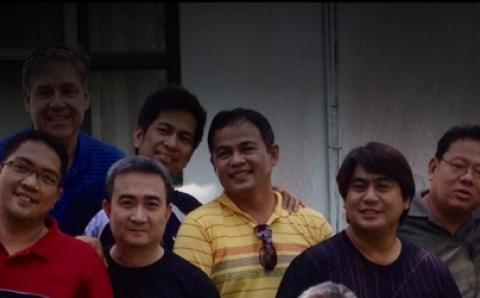A few weeks ago I visited another church in our community. In many ways it was very similar to my own church. But something happened during the sermon that made me realize that this was not a church I could feel at home in.
Somewhere in the course of that sermon, the pastor started talking about people who apparently were unhappy about something at that church. He called them “grumblers.” He also included a reference to spiritual warfare, leaving the impression that he saw the presence of grumblers as a form of spiritual attack on the leadership of the church—which may have been the case.
Then again, it could have been an indication that there were people in that church who had different tastes in music and worship style, different ministry priorities, different perspectives—people who felt like their gifts and contributions were not appreciated.
In my church, such differences are readily acknowledged. It is simply assumed, at all levels of church leadership, that people who are at different points in their spiritual journey and who come from different backgrounds with different church experiences will see things differently. Such differences are celebrated as something God can use to expand our spiritual horizon.
It’s a human tendency to seek out and congregate with people with similar points of view. But this can easily lead to endless re-hashing of certain issues—from only one perspective. Before long you have cliques of people who talk about those with different views but never with them.
I appreciate the way the leaders at my church promote and encourage conversation on a wide range of topics between people with different points of view. Rather than stifling conversation by labeling different points of view as evidence of spiritual warfare, they create healthy exchanges in a variety of ways.
Our church hosts regular town hall meetings, discussion groups, and less formal gatherings where people are invited to share their thoughts and opinions about a wide range of subjects. In those settings they are heard and, hopefully, understood.
The Holy Spirit touches our lives in different ways.
That is not to say that in my church anything goes, or that the worship team automatically adopts any new idea that comes up, or that programs are changed weekly to accommodate new ministry fads.
What we do have is an underlying trust that the Holy Spirit is at work in each one of us, and that our walk with Jesus is a constant transformation of our wandering minds, restoration of our broken hearts, and redirecting of our rebellious wills.
Time and again our leaders affirm that we do not all share the same spiritual experiences and that the Holy Spirit touches our lives in different ways as he sends us along different paths. The beauty lies in the mosaic of all these varying experiences and stories as expressed in one body, one community, one congregation.
That cannot happen when there is a fear of different opinions and different priorities, and when open communication about such differences is resisted, resented, and labeled “grumbling.” Such an approach communicates the opposite message: that God reveals his will for us only indirectly, through a religious hierarchy.
So I’m glad to be where I am right now—even though the church I visited allows me to take my coffee into the sanctuary. Come to think of it, I just might suggest that at my church’s next open mike town hall meeting.
The Gifts of God for the People of God: Deepening Table Practice
- What is your own experience of participating in the Lord’s Supper? What element is most meaningful to you?
- In what ways might you describe your faith as a lifelong journey? What are some of the milestones along the way?
- To implement the decision that all baptized persons may participate in the Lord’s Supper, churches are challenged to invite everyone into deeper participation. What would deepen your experience? What might deepen the experience of the children in your congregation?
- How can the church avoid the pitfalls of being either too legalistic or too casual about the celebration of the Lord’s Supper?
- How can creativity, innovation, biblical imagination, music, and art contribute to our celebration?
Reformed Matters: Trouble in River City
- What distinguishes folks who have legitimate different opinions about church and church life from those who are just “grumblers”?
- How does spiritual warfare relate to the way we deal with such differences of opinion? Can voicing our differences be of God? Can it be of the devil? Of both?
- How does your congregation acknowledge legitimate differences among members with respect to direction, worship, songs, and the like? Can you give specific examples? How could your church improve in doing so?
- What “factions” exist in your congregation? How are you and the church leadership addressing these? If there are none, how do you prevent those from arising?
- Do you agree with Van Donk’s observation that “The beauty lies in the mosaic of all these varying experiences and stories as expressed in one body, one community, one congregation”?
- If you feel strongly that a significant change needs to be made in your congregation, how will you proceed? What steps would you take? What should be your attitude if the church’s leadership disagrees and the change does not happen?
- Would it be good to invite worshipers in your church to take their coffee into the service? Why or why not?
About the Author
John Vandonk is a former CRC pastor, who enjoyed several other careers along the way, (including construction, dairy manager, and pool and spa equipment technician), but has now retired and, when not hanging out with grandkids, helps out at CrossPoint CRC








